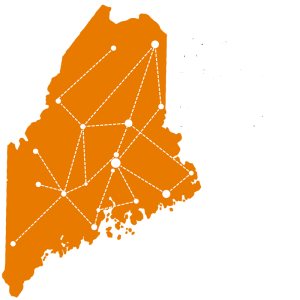The Challenge
Educator retention remains a significant challenge across Maine, particularly in rural areas. Retention is important because it is already difficult to recruit new teachers to rural Maine, with only 30% of pre-service teacher candidates indicating that they would consider teaching in a rural area. While there are many benefits to teaching in rural environments, such as access to the natural environment and smaller class sizes, rural teachers often face challenges that can erode long-term desire to teach there such as long commutes, difficulty finding housing, challenges integrating into the community, and professional isolation. Furthermore, many Maine educators indicate that they experience secondary stress as a result of working with children whose health and emotional needs are being under-served by the state’s rural health system.
Research has shown that mentoring and support networks can enhance teacher resilience and job satisfaction, which are essential for reducing attrition. However, we currently lack a clear understanding of what specific supports are needed by educators at different career stages to establish effective mentorship and support networks in rural settings. Furthermore, while rural areas often share common challenges, the solutions are often place-based and a result of the unique array of assets and advantages available to each community. Therefore, it is essential that program development happen in concert with Maine teachers, school leaders, and educator preparation programs.
Our Answer
To address this challenge, the Rural Educator Resilience Project is a two-year applied research project designed in concert with school districts and teacher leaders. This project intervenes at three key moments in an educator’s career:
Supporting educators at these three key points is critical because of role that each plays in supporting student learning, organizational improvement and change, and fostering the conditions that support educator success and preventing attrition from the profession.
For more details on how our programs support teacher resilience and prevent teacher attrition and burnout, check out our initiatives around Early Career Support, Teacher-Leader Support, and School Leader Support.

